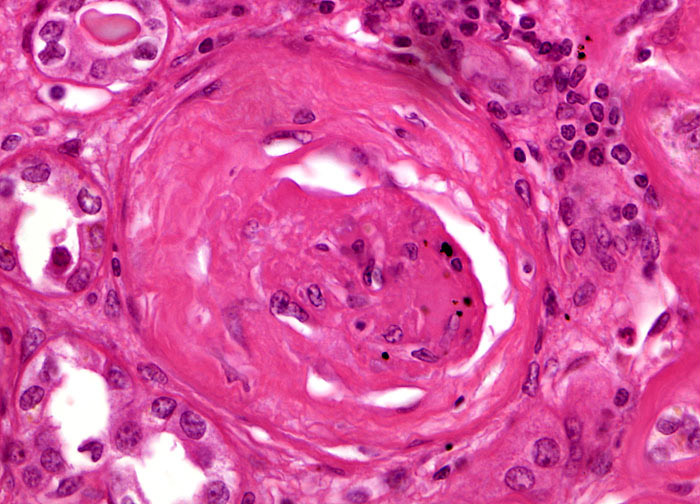
Diabetes at 40x Magnification
When regions of the kidneys begin to be less efficient at filtration, other parts work extra hard in order to compensate. Consequently, diabetes-related kidney damage may not be noticed until almost all functionality is lost. When symptoms begin to develop, they may include fluid accumulation, upset stomach, insomnia, weakness, loss of appetite, and loss of concentration. Usually by the time such signs appear, the damage to the kidneys is so extensive that dialysis or a kidney transplant is required. Since individuals diagnosed with diabetes are known to be at an elevated risk for kidney damage, however, they usually undergo periodic testing that enables any decrease in the filtration capability of the organs to be detected much earlier. A simple analysis of the urine for traces of protein is often enough to determine whether or not any kidney damage is present.













